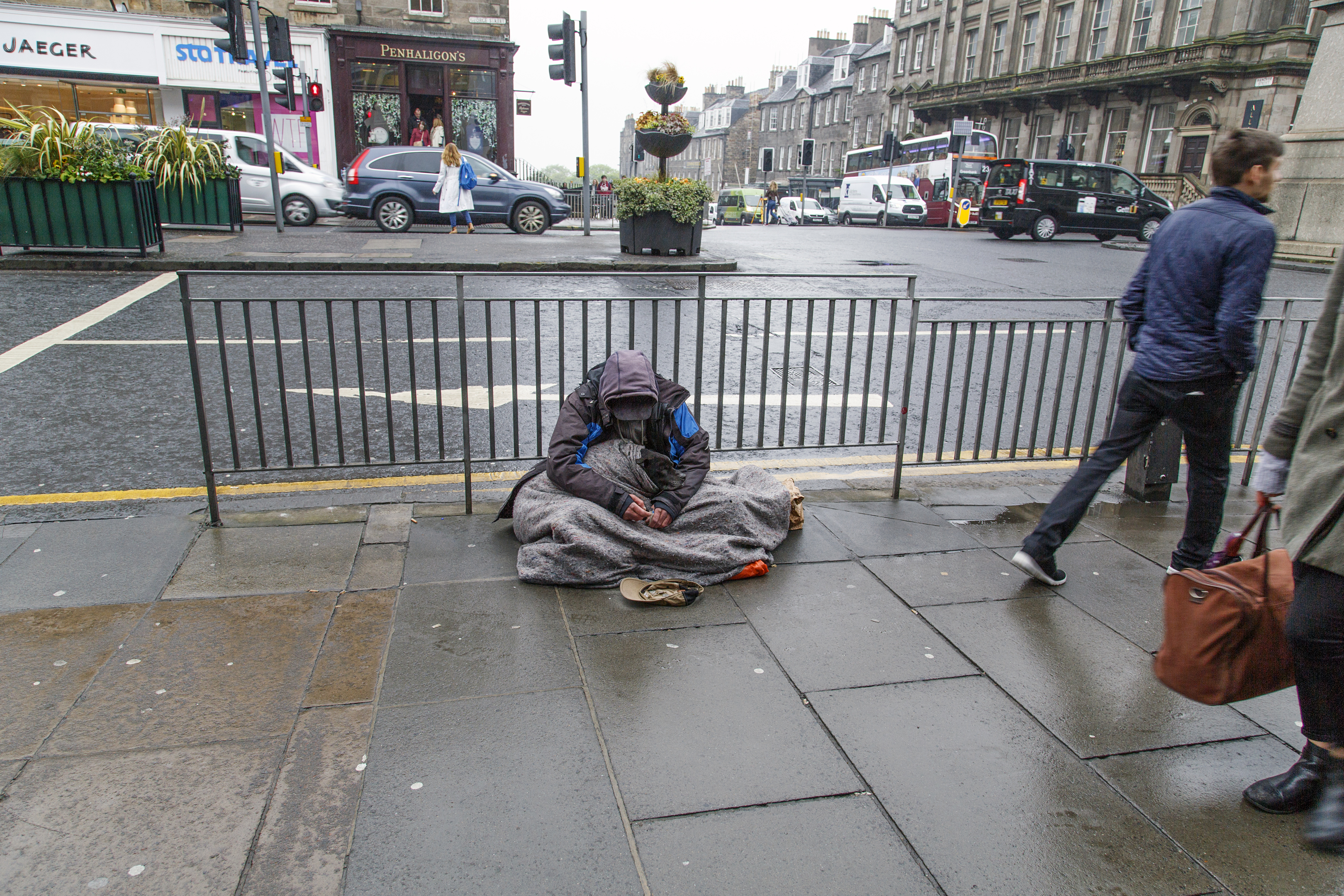
HOMELESSNESS in Scotland is predicted to rise by more than 50% in the next 25 years, according to new research.
If current economic policies continue unchanged, the number of rough sleepers is expected to nearly double in that time from 800 to 1,500, while in the shorter term the number of people in unsuitable temporary accommodation is forecast to rise by a third in the next decade.
Rates of people sofa-surfing due to lack of a permanent home are set to rise by almost a quarter (23%) in the next 10 years, the research by Heriot-Watt University in Edinburgh for homelessness charity Crisis also found.
The report states there are currently 11,800 people across Scotland either sleeping rough, staying in hostels, living in unsuitable temporary accommodation, sofa-surfing, sleeping in cars, or staying in squats or refuges.
Analysis indicates this figure is expected to rise to 12,200 by 2021 before accelerating to 18,100 – a rise of 53% on current levels – in 2041.
The report estimates that at any one time in 2016, across Scotland 800 people spent one night sleeping rough, 5,200 households were sofa-surfing and 2,100 households were living in unsuitable temporary accommodation.
A further 2,300 households were staying in hostels while 1,400 households were living in other circumstances, including squats, women’s refuges, winter night shelters, sleeping in tents, cars or public transport.
In response to the report’s findings, Crisis is calling on the public to join its Everybody In campaign aimed at ending the worst forms of homelessness.
Jon Sparkes, chief executive of Crisis, said: “This year Crisis marks its 50th anniversary, but that’s little cause for celebration. We still exist because homelessness still exists, and today’s report makes it only too clear that unless we take action as a society, the problem is only going to get worse with every year that passes.
“That means more people sleeping on our streets, in doorways or bus shelters, on the sofas of friends or family, or getting by in hostels and B&Bs. In order to tackle this, it’s crucial we first understand the scale of the problem.”
He praised the Scottish Government’s commitment to build 50,000 new affordable homes by 2021, of which 35,000 will be for social rent – which he said would help slow the rise in homelessness in the short-term.
He added: “Now is the time for action and we look forward to working with the Scottish Government to find solutions and bring these forecasts down. We can’t do this in isolation though, which is why we’re calling on the public to back our Everybody In campaign and help us build a movement for change.”
Scottish Liberal Democrat housing spokeswoman Caron Lindsay said: “Homelessness destroys people’s lives. The disruption, insecurity and stress that this causes is immense so to see figures on this scale is a national disgrace.
“When the SNP Government fail to get to grips with the housing crisis they fail these people and their families. There would, of course, be more houses for social rent if the SNP had not downgraded the target for social house building during the last Parliament.”
Housing Minister Kevin Stewart said: “We have some of the strongest rights for homeless people in the world, which has already led to falling homelessness in Scotland in recent years, despite challenges such as the UK Government’s welfare cuts and benefit cap.
“However we agree with Crisis that there is more to do. Our priorities include addressing homelessness for people with more complex needs, who may be rough sleeping and for whom simply providing accommodation is not always enough, and ensuring temporary accommodation plays a positive role in improving outcomes for homeless households.”
He pledged to continue working with other organisations to tackle homelessness.

Enjoy the convenience of having The Sunday Post delivered as a digital ePaper straight to your smartphone, tablet or computer.
Subscribe for only £5.49 a month and enjoy all the benefits of the printed paper as a digital replica.
Subscribe